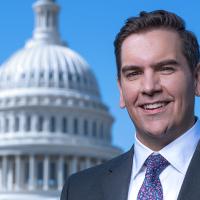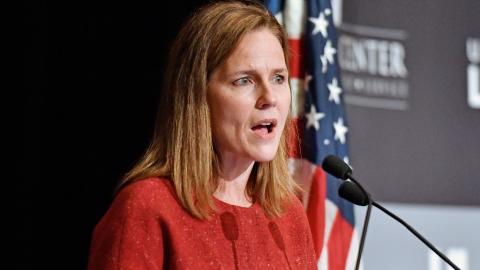Lawmakers and Tech Execs Discuss the Future of AI: Time to Act is Now
WASHINGTON - The time to act is now. That's the message coming from many in Washington as lawmakers and tech executives talk about the possibilities and potential perils of artificial intelligence.
Part of the urgency comes from the recent rise in AI programs and their growing use in everyday life, and the feeling that lawmakers need to get involved before the technology outpaces the ability to harness it.
Some of the biggest names in technology met with lawmakers on Capitol Hill this week. The likes of former Microsoft CEO Bill Gates, Facebook's Mark Zuckerburg, and SpaceX and Tesla owner Elon Musk met behind closed doors with a bipartisan group of senators to talk about AI policy.
"Think of the future as a series of probabilities. As opposed to certain things. If there is some chance that above zero, that AI will kill us. I think it's low, but at least some chance. I think we should also consider the fragility of human civilization. And if you study history, you realize that there's a rising culture, every civilization, every civilization has sort of a lifespan and so we want us to last as long as possible," Musk told reporters after the meeting.
 He's calling for a federal department on AI. Lawmakers believe regulations are in order before the technology gets too advanced.
He's calling for a federal department on AI. Lawmakers believe regulations are in order before the technology gets too advanced.
"Regulations are on the table, and I believe they are a reality in this field. It's a brand new field, and I think it needs some guidance," said Sen. Dick Durbin (D-IL).
AI could have an unknown number of impacts on society, both positive and negative.
"Huge opportunities for curing cancer, education, and huge risks. And I think that was the big tension. Risks that people are talking about civilization sized risks, maybe not so big in terms of percentage. But very smart people have concerns about some very big risks," said Sen. Dan Sullivan (R-AK).
The risk could include manipulating the technology to make fake video or audio, what's known as a deepfake, for nefarious purposes with the potential to do anything from harming someone or influencing an election.
Public hearings on AI were held Thursday on how the federal government could use the technology and the need for transparency.
"The threat to our civil liberties comes not from AI but from the people who want to control it and use it to censor information. It isn't the tool, it's the corruption of power that is always the problem," said Sen. Rand Paul (R-KY).
The takeaway from this week's flurry of AI activity is the general consensus that the technology needs guardrails although, there are sparse details on what exactly that might look like or how that gets done.
Last week, we saw one of the most tangible proposals so far. A bipartisan effort from Democratic Sen. Richard Blumenthal (D-CT) and Sen. Josh Hawley (R-MO). Part of their framework included an independent oversight agency for AI companies and ensuring that potential victims could take those companies to court.
**Please sign up for CBN Newsletters and download the CBN News app to ensure you keep receiving the latest news from a distinctly Christian perspective.***




